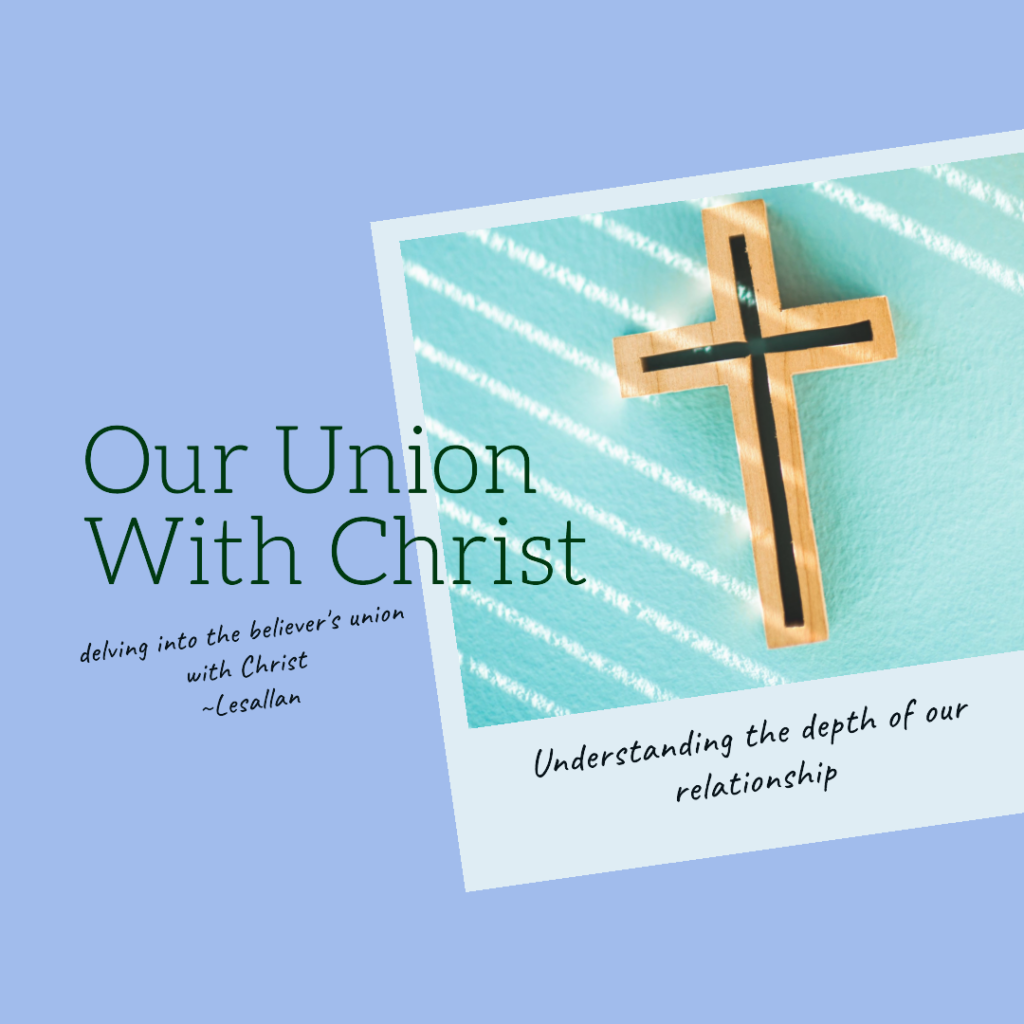Written By Lesallan – October 10, 2023

The Union with Christ
Written By Lesallan
Ohio Christian University
THE4050 Investigating Christian Theology II (ONLF23)
Professor Jeremy Kamer
October 10, 2023
The Union With Christ
Theology scholar Oden delves into the believer’s union with Christ, which he defines as a personal relationship that joins the believer to the risen and living Lord, secured by a covenant of grace. This union is both a gift and a responsibility, encompassing the present experience and future hope. Oden argues that this union is the source of all spiritual blessings and explores its implications for the Christian life, such as faith, love, obedience, holiness, service, and witness. He draws on various biblical metaphors to describe the nature and effects of this union and cites various historical and ecumenical sources to affirm its catholicity and orthodoxy. Oden concludes that the union with Christ lies at the heart of Christian faith and life (Oden, 2009).
In his work, Oden (2009) presents several key ideas for constructing a theology around the union of believers with Christ. He explains that the union with Christ is a personal relationship between Christ and the believer, brought about by the Holy Spirit through a covenant of grace. This union is rooted in the historical events of Christ’s incarnation, death, resurrection, and Ascension, and is mediated by the Holy Spirit through means such as the Word, sacraments, prayer, and fellowship. The union with Christ is the source of all spiritual blessings, including justification, sanctification, adoption, regeneration, and glorification. Furthermore, it has significant implications for the Christian life, such as faith, love, obedience, holiness, service, and witness. Biblical metaphors such as marriage, vine and branches, body and members, head and body, temple and stones are used to describe this union. The union with Christ is affirmed by the historical and ecumenical consensus of the church, while also acknowledging its diversity and mystery (Oden, 2009).
I agree with Oden (2009) that the union with Christ is a central theme of Christian theology. The union with Christ is a personal relationship of the believer to the risen and living Lord, by which the believer is joined to Christ by the Spirit in a covenant of grace (Oden, 2009). This idea captures what it means to be a Christian, as it emphasizes the personal, dynamic and gracious nature of our relationship with God through Christ. Oden supports this idea by quoting various biblical passages affirming this union’s reality and intimacy, such as John 15:5, Romans 8:9-11, Galatians 2:20 and Ephesians 2:4-7 (Oden, 2009).
Oden (2009) stresses that the union with Christ is the essence of Christian faith and life. It is a concrete reality based on historical events, facilitated by the Holy Spirit through grace, such as the Word, sacraments, prayer, and fellowship. This union is essential for receiving spiritual blessings, and is supported by biblical texts like Romans 6:5-11, 1 Corinthians 1:30, Galatians 3:26-29, and Ephesians 1:3-14. The union with Christ affects the whole conduct of a Christian’s life. It is an active and dynamic process that involves faith, love, obedience, holiness, service, and witness. Oden provides practical examples of how our union with Christ shapes our response to God’s grace and transforms our character and behavior (Oden, 2009).
The concept of union with Christ is a rich doctrine that can be approached from various perspectives and expressed through multiple biblical metaphors, including marriage, vine and branches, body and members, head and body, and temple and stones (Oden, 2009). Oden explains how each metaphor conveys different aspects and effects of this union, including intimacy, dependence, diversity, unity, growth, and holiness. The historical and ecumenical consensus of the church affirms the doctrine of union with Christ while acknowledging its diversity and mystery (Oden, 2009). This consensus recognizes that Christians across time and space have confessed and celebrated this Catholic and Orthodox doctrine, which transcends human comprehension and expression. Oden surveys the historical development and ecumenical agreement on this doctrine from the patristic era to the modern era while acknowledging the diversity of opinions and expressions within this consensus. He also acknowledges the limitations of human language and logic in describing this doctrine and emphasizes the role of faith and experience in grasping its reality (Oden, 2009).
Lesallan
References:
Oden, T. C. (2009). Classic Christianity: a systematic theology. HarperOne.


